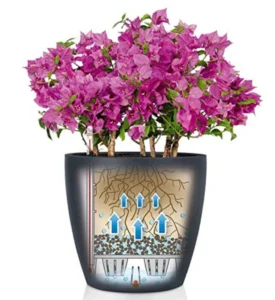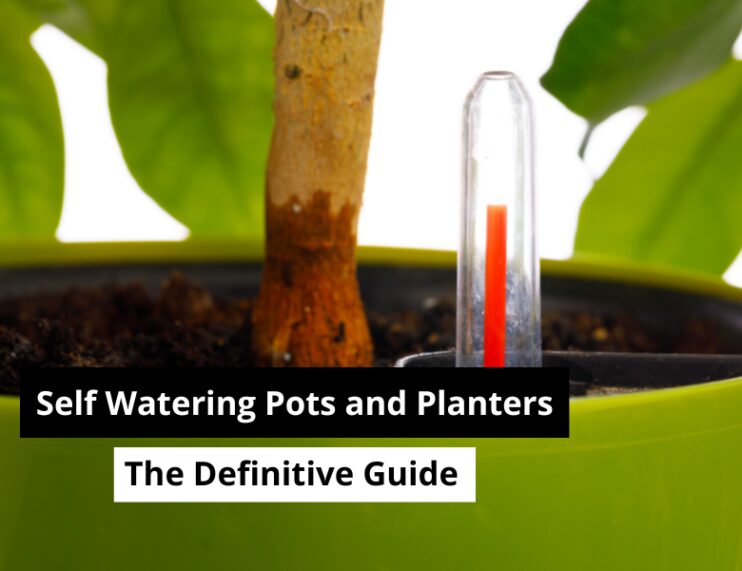We use affiliate links. If you purchase something using one of these links, we may receive compensation or commission.
Let’s face it:
Keeping the plants hydrated all the time can be a daunting task, especially when you have a busy lifestyle or you are mostly out of your house.
One of the solutions to keep your plants healthy and moist without having to constantly water them is by using Self-watering pots.
Self-watering pots basically keep the plants moist by distributing the water at the right time.
But as handy as the self-watering pots are, they have some disadvantages as well.
In this article, I will guide you on what are self-watering pots, what are their types, their pros and cons and I will also tell you if you should buy one or not.
So, If you are planning to buy a self-watering pot, then this definitive guide on Self Watering pots is a must-read.
Table of Contents
What are Self Watering Pots?
Self-watering pots, as the name suggests, are a special kind of pot or planter that keeps the plant moist by absorbing the water from the in-built reservoir through the wicking system.
It reduces the need to water the plants frequently as you just have to top up the water reservoir once and the pot functions to keep the soil moist automatically.
How do Self Watering Pots work?
Self Water Pots consist of four main parts which are Chamber A, Water Reservoir, Wicking System & Filling Tube.
When you put water using the fill tube located at the top of the put or around the corner, the water gets collected into the reservoir.
Then the water is absorbed using the wicking system which works like a sponge. Afterward, the wicking system transfers the water slowly into the soil and keeps it moist.
As a result, the plants get water and nutrients from the soil and this is how self-watering pots work.

There are two chambers in the self-watering pots. The upper chamber consists of soil and plants whereas the lower chamber is known as Water Reservior.
When you fill out the reservoir with water using the fill tube. The fill tube also has a closing lid which prevents any garbage to collect in the reservoir. Once you fill the water into the reservoir.
Then, the wicking system absorbs the water and keeps the soil moist. When the soil gets moist, the roots of the plants absorb the water and nutrients easily and keep the plants healthy.
What are the advantages of Self Watering pots?
One of the most common mistakes gardeners in general make is overwatering the plants, or even worse forgetting to water the plants. In both case scenarios, the plants might die due to excessive water and lack of water.
Self-watering pots or containers provide an easy way to grow plants by providing a consistent level of moisture directly to the root of the plant. And it helps to keep the plants healthy and fresh.
If you frequently travel or stay a long time out of your home, then self-watering pots can be an easy solution to fulfill the watering needs of the plant.
What are the problems with Self Watering pots?
While self-watering pots provide an easy solution to fulfill the watering needs of your plants, there are a few problems that you might encounter with self-watering pots. I have listed them below:
- Self Watering containers are not suitable for all plants. It’s mostly good for vegetables and plants that need a good amount of moisture.
- If your container lacks a good overflow, then the water storage space becomes a breeding ground for mosquitos, fungi, or other harmful insects.
- Containers without a proper drainage system for excess water can result in the rotting of plant roots.
Should I buy Self Watering Pots?
If you spend most of your time away from home or if you are too busy to water your plants, then you should definitely buy self-watering pots. But keep in mind, that self-watering pots are not suitable for all plants so you have to figure out if the plants need a good amount of moisture that the container provides.
Conclusion
So, In this guide, we discussed all the pros and cons of Self Watering pots. I hope this article helped you to figure out whether self-watering pots are right for you or not. However, we also discussed the advantages of self-watering pots. If you have any questions, feel free to leave them in the comment section below.

